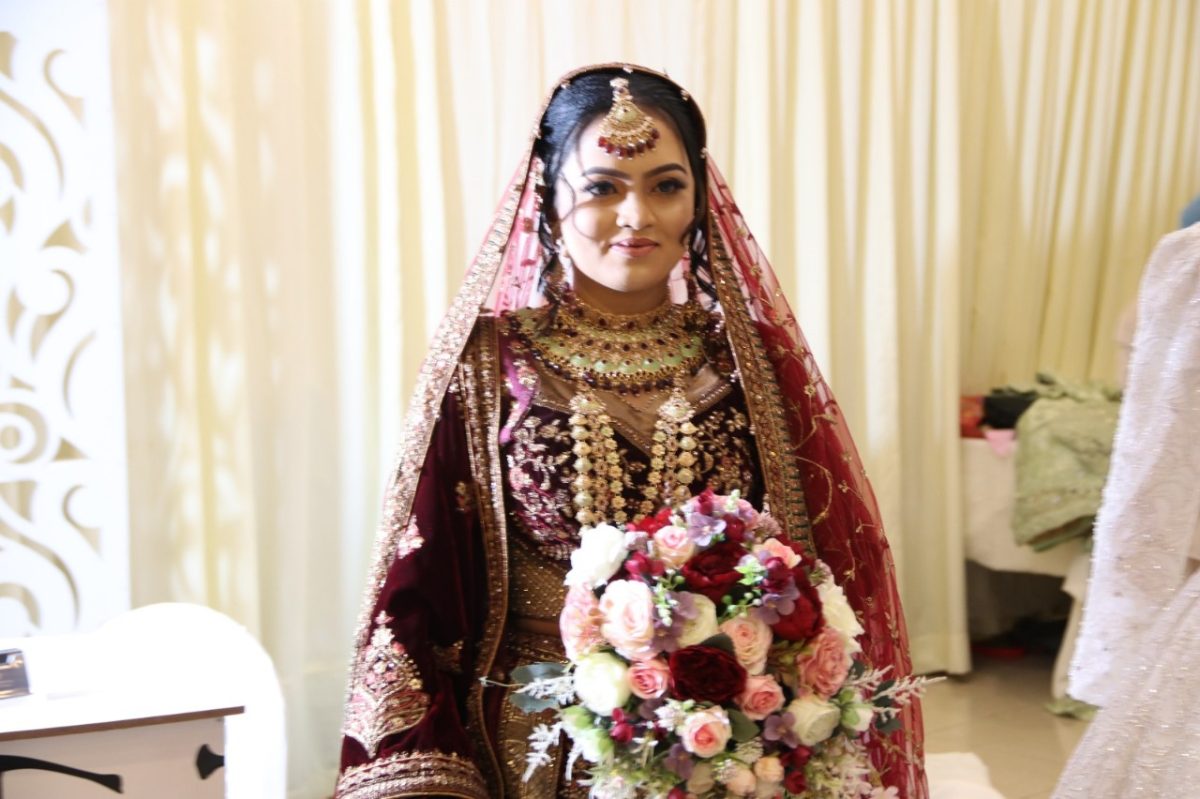There are many questions and requests about information regarding the IDDAD of a Muslim widow. This article presents some simple facts about this period – Consider it in the light of a facts sheet.
IDDAH (WAITING PERIOD FOR A WIDOW)
What is Iddah?
The literal meaning of Iddah is to keep count. In Islamic legal terminology, it is the period after her husband’s demise, in which the woman has been instructed to refrain from getting married again.
The period of Iddah:
According to the directives of Allah SWT, the waiting period for widows is four months and ten days.
“And those of you who die and leave wives behind them, they (the wives) shall wait (as regards their marriage) for four months and ten days.” (Surah Al-Baqarah, Verse 234
If the widow is pregnant, then the waiting period is till the birth of the child, irrespective of whether it is before the 4 month 10 days period or several months after it.
“And for those who are pregnant, their Iddah (prescribed period) is until they lay down their burden; ” (Surah At-Talaq, Verse 4)
What is mourning:
In a hadith the Prophet (SAW) is reported as saying:
“It is not lawful for a woman who believes in Allah and the Last Day, that she should mourn a dead person for more than three days except in the case of her husband whom she should mourn for four months and ten days.”
(Muttafiq ‘Alaih)
Mourning is:
1.To refrain from adornment
A widow observing the waiting period, should not beautify herself in any way or wear ornaments. She should not wear attractive clothes or bright colors. All kinds of make-up including henna and kohl is forbidden; neither can she apply perfume or wear jewellery.
Wisdom: The wisdom of this instruction to adopt simplicity is two-fold: it is done to show respect and honour for the sanctity of the marriage bond and the time spent with her husband; also to avoid the possibility of receiving marriage proposals.
2.To avoid going out.
During the waiting period, the widow should not leave her house except if it is for some important reason (the necessity of which is left to her judgement based on her Taqwa- her love, respect and fear of Allah).
Livelihood Requirements:
During the waiting period, if there is no one else to do this for her, a widow is allowed to go out for absolutely unavoidable tasks, such as going to the doctor, taking the children to school, shopping for groceries etc
Similarly, if she has no one to provide for her and no other means of income, and she needs to earn her
livelihood, then it is permissible to take up employment, resume her job in order to ensure it’s continuity, or as is the case in villages, to work on the land and tend to the cattle. However the other conditions of Iddah must be observed i.e. simplicity and lack of adornment and returning home before nightfall. (Allah knows best)
Abroad or During Haj:
If she has permanent residence abroad or if she is widowed during an overseas visit, where the local laws do not allow her to stay on, then she should return to he own country. Similarly, if she is widowed during Haj, it is naturally not possible for her to stay there, and in these situations, the instruction to spend the Iddah period where her husband passed away does not apply. She can return to her own country to spend the waiting period in her own home.
______________________________________________________________________________
The Prophet (SAW) said:
“Allah does not go after your bodies and appearances, but He scans your hearts.”( Muslim)
______________________________________________________________________________
In Islam, iddah or iddat (Arabic: العدة; period of waiting) is the period a woman must observe after the death of her spouse or after a divorce, during which she may not marry another man.[1] The period, three months after a divorce and four months and ten days after the death of a spouse, is calculated on the number of menses that a woman has. Iddah was intended to ensure that the male parent of any offspring produced after the cessation of a nikah would be known.
Qur'an prohibits widows to engage themselves for four lunar months and ten days after the death of their husbands.[2] Islamic scholars consider this directive to be a balance between mourning of husband's death and protecting the widow from criticism that she from re-marrying too quickly after her husband’s death.[3] This is also to ascertain whether a woman is pregnant or not, since four and a half months is half the length of a normal pregnancy.[4]
Husbands should make a will in favor of their wives for the provision of one year’s residence and maintenance, unless the wives themselves leave the house or take any other similar step. [5] The Qur'anic verse relating to the period of iddah is:
Al Baqarah 2:234 If any of you die and leave widows behind, they shall wait concerning themselves four months and ten days: When they have fulfilled their term, there is no blame on you if they dispose of themselves in a just and reasonable manner. And Allah is well acquainted with what ye do. (Yusuf Ali)
The directive of the Qur'an regarding the waiting period of a widow, are as under:
Whoever from amongst you dies and leaves behind wives, the wives will hold themselves [from marriage] for four months and ten days. Then, when they have expired this period, there is no blame upon you in whatever they do regarding themselves, according to the recognized traditions. And God is fully aware of whatever you are doing. And there is no blame upon you in proposing [marriage] to these women or in keeping such proposal to yourself – God is aware that you would mention it to them – but do not make with them any secret commitments, except that you say a noble word to them. However, do not commit the marriage-contract with them, until the law has reached its prescribed time… (Al-Baqarah 2: 234 – 235)
The following is a summary of the main directives entailed in these verses:
- The waiting period (Iddah) of a widow is four months and ten days;
- During this period, the woman is not to marry another husband;
- During this period, a person may declare his intentions of marrying the widow – in a socially acceptable manner – or he may keep such intentions to himself, yet he should not make a secret commitment of marriage with the widow; and
- The time and place of the marriage-contract should be finalized and committed to only after the period of four months and ten days has expired.
These are the basic directives of the Sharia regarding the waiting period of a widow. It is also clear from another directive of the Qur'an that during this waiting period, the woman should not be turned out of her house.
Comparing this waiting period with the one prescribed for a divorced woman (i.e. three menstrual periods of the divorced woman), we see that the waiting period prescribed for a widow exceeds that, which is prescribed for a divorced woman by at least a month and a half. It is also clear from the stipulations of the Qur'an that the prescription of the waiting period for a divorced woman is with the basic purpose of ascertaining her condition with reference to pregnancy as well as to provide the divorcing couple adequate time to review and, if possible, to revise their decision. Thus, in view of the increased prescription of waiting period in the case of a widow, it seems that the waiting period prescribed for a widow entails other purposes, besides merely ascertaining the woman's position with reference to pregnancy.
The Muslim jurists and thinkers have generally construed this additional purpose entailed in the prescription of the waiting period for widows to be that of the widow's 'mourning' her deceased husband. The understanding of the Muslim jurists and thinkers seems to be quite logical and in consonance with sayings ascribed to the Prophet. However, it seems important to add that the prescription of a specified 'waiting' or 'mourning' period is for the purpose of safeguarding the woman against defamation, slander and ill-repute in society. It is specifically for this purpose that others are directed against making a 'secret' commitment of marriage with the widow or deciding about the time and place of the marriage-contract, during the prescribed period. It is reported that Muhammad advised widows to be extra modest in their appearance and to even refrain from wearing any fragrance, during this period.
All these directives and advice seem to point to the fact that a woman should not only be, but also appear to be in a state of mourning, so that her social circles do not get a chance to say a negative word about her.
Post Disclaimer | Support Us
Support Us
The sailanmuslim.com web site entirely supported by individual donors and well wishers. If you regularly visit this site and wish to show your appreciation, or if you wish to see further development of sailanmuslim.com, please donate us
 Donate
Donate
IMPORTANT : All content hosted on sailanmuslim.com is solely for non-commercial purposes and with the permission of original copyright holders. Any other use of the hosted content, such as for financial gain, requires express approval from the copyright owners.
 Sri lanka Muslims Web Portal Sri Lanka Muslims News Center
Sri lanka Muslims Web Portal Sri Lanka Muslims News Center
 Donate
Donate



I am a girl 25 years of age.I got married on 02 April 2013.I had stayed with my husband (joint family) for only 4 Days till Walima.We did not have any sexual relation.I came back home to stay with my parents.I applied for Khula and my Nikkah got annulled on 10th of November 2013.
The Shariah court asked me to go for Iddat for 3 Months.How ever I have been getting information that in my case Iddat is not applicable.So kindly shed some light on it and inform if Iddat in my case is not applicable.
Salams ..
Hope you have received the Answer for this.
Admin – SMF
Asalam O Alikum
Could you please guide me when my mother Iddah will finish. My father passed away on 21th April at 12:20pm, & Islamic date was 10th Jumaada Al Thaani,,,.
Some people are suggesting that every month one day will reduce from total. some are saying different things. Please could you provide me the exact date. Jazak Allah